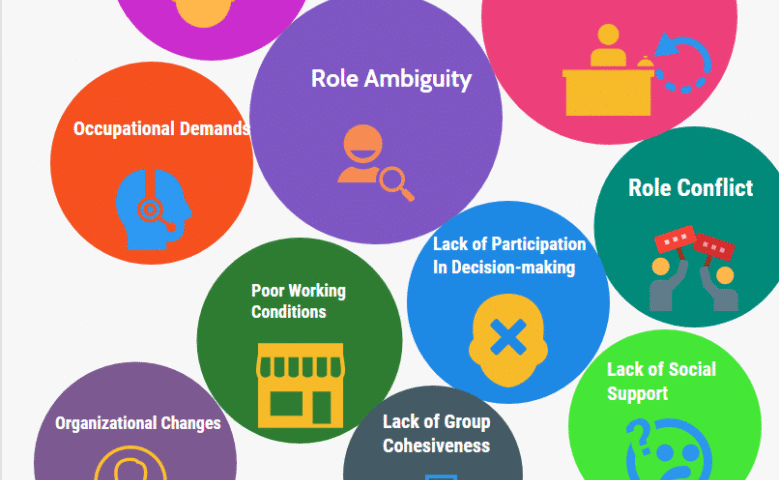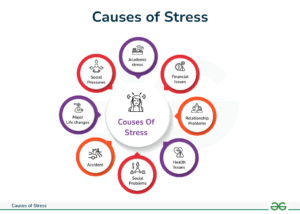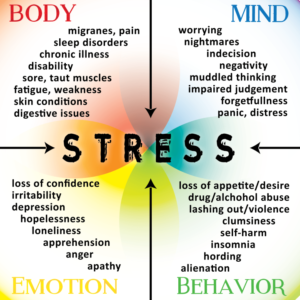Introduction
We all know that life brings challenges every day, but when challenges pile up, they often become the major causes of stress. Stress is our body’s natural response to pressure, demands, or threats. While a little stress can push us to perform better, too much stress affects our physical health, emotional balance, and mental clarity. By understanding the common causes of stress, we can learn how to manage them effectively and live healthier lives.
- Work Pressure and Job Demands
One of the leading causes of stress in modern life is heavy work pressure. Meeting deadlines, handling long hours, managing difficult bosses, and worrying about performance reviews can exhaust our energy. People often struggle to balance professional expectations with personal life, which creates ongoing stress. When unmanaged, workplace stress leads to burnout, anxiety, and even physical illness.
- Financial Problems
Money issues are among the biggest causes of stress for individuals and families. Rising living costs, debt, loans, and unexpected expenses can trigger constant worry. Stress linked to financial insecurity not only impacts our emotional health but also affects relationships. Many people lose sleep over unpaid bills and unstable income, making financial stress a widespread challenge.
https://www.mind.org.uk/information-support/types-of-mental-health-problems/stress/causes-of-stress/
- Family Conflicts and Relationships
Relationships are meant to provide love and support, but conflicts can become serious causes of stress. Arguments with a spouse, misunderstandings with children, or disputes with relatives can weigh heavily on our minds. Unresolved relationship stress can lead to emotional pain, frustration, and even physical symptoms such as headaches or digestive problems.
- Academic Pressure on Students
For students, education itself can be one of the main causes of stress. Exams, assignments, competition, and the fear of failure create constant pressure. Many students feel overwhelmed when they cannot meet high expectations set by parents, teachers, or society. This stress often results in anxiety, loss of focus, and even depression.
- Health Issues
Poor health or chronic illness is another strong factor among the common causes of stress. Living with medical conditions such as diabetes, heart disease, or constant pain creates ongoing worry. Even minor health problems, like frequent headaches or digestive issues, can cause stress when they interrupt daily routines. Stress related to health can also worsen the condition, creating a cycle that feels hard to break.
- Lack of Time and Busy Schedules
Modern life moves at a fast pace, and lack of time is one of the unavoidable causes of stress. People juggle between work, home, family, and personal responsibilities without enough breaks. When our schedules become too packed, we feel constantly rushed, which raises stress levels. Learning to prioritize tasks and say “no” to unnecessary commitments can reduce this burden.
- Social Pressure and Expectations
Living up to societal standards is another hidden yet powerful factor in the list of causes of stress. People often compare themselves with others—whether in career success, lifestyle, or appearance. Social media has increased this pressure, making people feel inadequate. These comparisons create feelings of low self-worth, leading to stress and anxiety.
- Major Life Changes
Even positive changes, like moving to a new house, marriage, or starting a new job, can act as major causes of stress. Negative changes, such as divorce, losing a loved one, or unemployment, are even more stressful. Big transitions force us to adapt quickly, and when adaptation is difficult, stress levels rise sharply.
- Environmental Factors
Noise, pollution, traffic, and unsafe neighborhoods are overlooked causes of stress. Living in a crowded or noisy environment prevents relaxation and rest. Constant exposure to stressors in the environment can affect both mental and physical well-being, making people irritable and restless.
- Poor Lifestyle Habits
Unhealthy habits like lack of sleep, poor diet, excessive caffeine, and lack of exercise are underestimated causes of stress. These habits reduce the body’s ability to handle daily challenges. Over time, they make the body and mind more vulnerable to pressure, leading to chronic stress.
How to Control Stress in Everyday Life?
Understanding the main causes of stress is the first step. The second step is learning how to control it before it harms our health. Stress cannot be removed completely, but it can be managed with healthy habits and awareness.
1. Practice Relaxation Techniques
We can control stress by practicing deep breathing, meditation, or yoga daily. These techniques calm the mind, slow down the heartbeat, and reduce anxiety. Even five minutes of mindful breathing can make a huge difference.
2. Exercise Regularly
Physical activity is one of the best natural ways to control stress. Exercise releases endorphins (happy hormones) that improve mood and reduce tension. A simple walk, light stretching, or cycling for 30 minutes a day helps fight stress effectively.
3. Maintain a Healthy Lifestyle
Unhealthy habits are strong causes of stress, but we can control them by eating a balanced diet, reducing caffeine, and sleeping well. A healthy lifestyle improves energy levels and resilience against everyday challenges.
4. Manage Time Effectively
Lack of time is one of the common causes of stress, but better planning can help. Making a daily schedule, setting priorities, and avoiding procrastination give us more control over our tasks.
5. Build Strong Relationships
Conflicts and loneliness increase stress. Talking to trusted friends, family, or counselors helps us release negative emotions. Social support is a powerful stress controller because it reminds us we are not alone.
6. Limit Social Media and News Exposure
Constant comparison on social media and negative news can be hidden causes of stress. By reducing screen time and setting boundaries, we can protect our mental peace.
7. Take Breaks and Rest
We should allow ourselves to rest without guilt. Short breaks during work, hobbies, or even a nap refresh the mind. Resting properly prevents burnout and gives us new energy to face challenges.
8. Seek Professional Help if Needed
Sometimes stress becomes overwhelming. In such cases, consulting a psychologist, therapist, or doctor is important. Professional support gives guidance on coping strategies, therapy, or treatment when stress is out of control.
FAQs
Q1: What are the most common causes of stress?
The most common causes of stress include work pressure, financial issues, health problems, relationship conflicts, and lack of time.
Q2: Can stress cause physical illness?
Yes, unmanaged stress can lead to headaches, heart problems, digestive issues, and weakened immunity.
Q3: How can I reduce stress in daily life?
Simple practices like exercise, meditation, proper sleep, and time management can reduce everyday stress.
Q4: Do students also face stress?
Yes, academic pressure, exams, and competition are major causes of stress among students.
Conclusion
Stress is a part of life, but by identifying the top 10 common causes of stress, we can learn how to manage and reduce it. Work pressure, financial worries, health issues, and relationship struggles are some of the biggest stress triggers, but lifestyle changes, proper planning, and self-care can help us overcome them. By addressing these challenges with awareness, we can create a balanced and healthier life.


